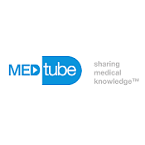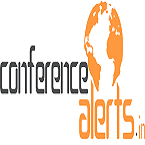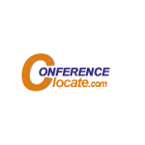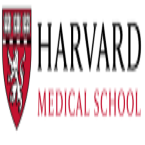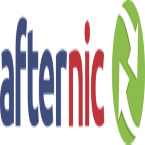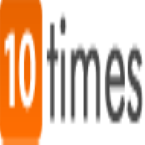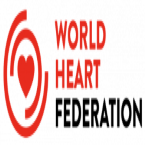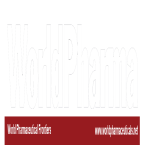Theme: Theme: Shining a Spotlight On Global Cardiology Health
Cardiology Congress 2023
- About Conference
- Why to Attend our Conference?
- Sessions and Tracks
- Market Analysis
- Past Conference report
Cardiology Congress 2023 taking the privilege of invitation each one of the individuals to give their valuable presence at the upcoming Event “35th World Congress on Cardiology & Heart Diseases” amidst March 22-23, 2023 at London,UK which working under theme: “Shining a Spotlight On Global Cardiology Health” that melds brief keynote presentations, speaker talks, Exhibition, Symposia, and Workshops. Cardiology Congress 2023 is one of the Cardiology meetings 2023 which will be visited by all the prestigious cardiologists, cardiology educators, researchers, postgraduates, business meanders under a solitary rooftop.
Our conference has a well-balanced speaker line-up that covers both broad and specific topics of interest. Our goal is to provide an opportunity for cardiac physicians, specialists, nurses, technologists, and anyone else professionally involved in Cardiovascular Disease to learn about the disease's complexity, discuss interventional procedures, examine new and advanced cardiac practices and their efficiency and efficacy in the treatment of various cases, and understand local realities and practical constraints in improving patient-care. The theme of the CARDIOLOGY CONGRESS 2023 will be "One Step Forward toward Advancements in Cardiovascular Research and Heart Diseases."
Benefit of Attending Conference:
· Use DOI to publish your abstract.
· Obtain certification for your involvement
· Lower Costs Affordability
· Dismantle geographic barriers
· Convenience from the comfort of your home or place of employment
· They've Been Archive: the capability of watching events recorded
· Excellent site for learning new professional skills
· global dissemination of your research
· Build new relationships
· Significantly less time spent, greater involvement, and more engaging
This Conference provides a unique networking and collaboration opportunity to promote your merchandise and gain your brand recognition and credibleness. It delivers cutting-edge analysis on research in association with the intimate setting where attendees and exhibitors receive customized client service.
Sponsors and exhibitors will benefit from great foot-traffic and generous recognition.
Don’t miss your chance to:
- Network
- Build complete Awareness
- Make a protracted time impact on your target market
- Find new customers Stay on high of business trends
- Capture immediate feedback on new technologies, services, or merchandise
- Gain business insight and appraise market trends to come up with new business opportunities.
- Access relationships with contacts WHO might not be a part of your current market or promoting strategy
CARDIOLOGY MEETING 2023 will bring together world-class faculty, scientists, surgeons, and cardiologists to discuss disease remediation methodologies for the heart, thoracic region, electrocardiography, heart failure, nuclear cardiology, and stroke.
Track 1: Anesthesia and Cardiac Image
General anesthesia for cardiac MRI follows the same principles as any other anesthetic technique in children with heart disease. High-risk inherent risk imaging in patients with medical or health risks, imaging with equipment risks, and imaging with procedure risks such as MRI-guided surgery and minimally invasive procedures. Patients who have undergone previous cardiac surgery can have an MRI. Patients with pacemakers and defibrillators are absolute contraindications. An in newborn infants, infants, and small children, MRI requires deep sedation or general anesthesia. MRI challenges include limited access to the patient and equipment, a low ambient temperature with the risk of hypothermia, and a noisy unfamiliar environment due to the remote location from the operating room. Anesthesia for magnetic resonance imaging (MRI) in the form of moderate sedation, deep sedation, monitored anesthesia care, general anesthetic, or ventilator and critical care support.
Related Conference: Cardiology Meeting 2023, Cardiology Event 2024, Cardiology Submit 2024.
Track 2: Cardiac Nursing
Patients with varied cardiovascular problems are treated by nurses who specialize in cardiac nursing. Under the supervision of a cardiologist, cardiac nurses assist in the treatment of conditions such unstable angina, cardiomyopathy, coronary artery disease, congestive heart failure, myocardial infarction, and cardiac dysrhythmia. A surgical unit's postoperative care, stress test evaluations, cardiac and vascular monitoring, and health evaluations are all responsibilities carried out by cardiac nurses. Coronary care units (CCU), cardiac catheterization, intensive care units (ICU), operation theatre, cardiac rehabilitation facilities, clinical research, cardiac surgery wards, cardiovascular intensive care units (CVICU), and cardiac medical wards are just a some of the situations where cardiac nurses work.
Related Conference: Cardiology and Heart Congress 2023, Cardiovascular Event 2023.
Track 3: Cardiovascular Surgery
Cardiovascular surgery, also known as thoracic surgery, is a branch of medicine that involves the surgical treatment of organs inside the thorax and is performed on the heart or major vessels by cardiac surgeons. There are five different types of cardiac surgery. Heart bypass surgery Modern cardiothoracic surgery Transplantation of the heart Coronary artery bypass surgery Minimally invasive surgery and surgeries are performed to treat the complexity of ischemic heart disease, correct congenital heart disease, or treat vascular heart disease caused by a variety of causes such as endocarditis, rheumatic heart disease, and atherosclerosis. Advances in cardiac surgery and cardiopulmonary bypass techniques have greatly reduced the mortality rates of these procedures. To avoid complications, the surgery necessitates postoperative care. Laceration care is required to avoid infection and scarring. As previously stated, swelling and loss of appetite are common. The most common type of heart surgery is coronary artery bypass grafting (CABG). CABG increases the flow of blood to the heart.
Related Conference: Cardiology world congress 2024, Cardiology Open Heart 2023, Cardiology Event 2023.
Track 4: Cardiovascular Disease
Cardiovascular diseases related to diseases of the blood vessels or the heart. Coronary artery diseases such as myocardial infarction and angina pectoris are examples of cardiovascular disease. They also include stroke, heart failure, hypertensive heart disease, cardiomyopathy, arrhythmias, congenital heart failure, vascular heart disease, cordites, aortic aneurysms, and thromboembolic disease.
According to business intelligence source GBI Research, the cardiovascular disease market—which includes hypertension, dyslipidemia, and thrombotic events—is expected to increase from $129.2 billion in 2015 to $146.4 billion by 2022, at a fairly sluggish compound annual growth rate of 1.8%.
Track 5: Cardiovascular Medicine
Cardiovascular Medicine is the most widely used provider of cardiovascular services, specialized in the detection, management, treatment, and prevention of various cardiovascular diseases. Cardiovascular medicine focuses on the diagnosis and treatment of diseases of the heart and blood vessels, also known as the vascular system, such as coronary artery disease, heart rhythm disorders, heart failure, congenital heart defects, heart valve disease, heart muscle disease, and vascular system disorders such as aorta and other vessels.
Related Conference: Cardiology Meeting 2023, Cardiology Event 2024, Cardiology Submit 2024.
Track 6: Cardiovascular Surgery
Cardiovascular surgery, also known as thoracic surgery, is a branch of medicine that involves the surgical treatment of organs inside the thorax and is performed on the heart or major vessels by cardiac surgeons. There are five different types of cardiac surgery. Heart bypass surgery Modern cardiothoracic surgery Transplantation of the heart Coronary artery bypass surgery Minimally invasive surgery and surgeries are performed to treat the complexity of ischemic heart disease, correct congenital heart disease, or treat vascular heart disease caused by a variety of causes such as endocarditis, rheumatic heart disease, and atherosclerosis. Advances in cardiac surgery and cardiopulmonary bypass techniques have greatly reduced the mortality rates of these procedures. To avoid complications, the surgery necessitates postoperative care. Laceration care is required to avoid infection and scarring. As previously stated, swelling and loss of appetite are common. The most common type of heart surgery is coronary artery bypass grafting (CABG). CABG increases the flow of blood to the heart.
Related Conference: Cardiovascular congress 2023, Cardiology meeting 2024, Cardiology Conference 202.
Track 7: Cardiovascular Toxicology and Pharmacology
Cardiovascular Toxicology is a branch of toxicology that focuses on the harmful effects of toxic chemicals on the heart and blood systems. It compiles safety data on the detrimental effects of new cardiovascular medications. Endothelial cell pharmacology deals with the modifications of endothelial cells and the vasculature, which play a crucial role in the pathogenesis of a wide range of the most dreadful of human diseases, as endothelial cells play a vital role in the maintenance of patent and functional capillaries.
Track 8: Clinical Cardiology
Clinical cardiology is the branch of internal medicine that deals with heart disorders and diseases in humans and animals. The field includes heart failure diagnosis and treatment, congenital heart defects, coronary artery disease, vascular heart disease, and electrophysiology. It is entirely dependent on the circulatory system, also known as the cardiovascular system. During the circulation process, blood carries oxygen and nutrients from your heart to the rest of your body via a complex network of arteries, arterioles, and capillaries, while deoxygenated blood returns to your heart via venules and veins. Cardiologists are physicians who have specializing in this field. Cardiothoracic surgeons, also known as cardiac surgeons, are general surgeons who have specializing in cardiology. Clinical Cardiology is critical in the coordination of research in medical diagnosis, cardiovascular medicine, and cardiovascular surgery.
Related Conference: Cardiovascular Surgery Seminal 2023, Cardiology Event 2023, Cardiology Meeting 2023.
Track 9: Clinical Case reports on cardiology
A cardiology clinical case report provides an appropriate convention for all cardiologists by rendering their important clinical cases of late occurrence. Learning from medical cases is a valuable experience for clinicians, students, and paramedics. Rare medical reports and conditions discovered using cutting-edge examination methods are energized. Furthermore, studying diagnostic methods from medical cases and symptom interpretation is important for training and developing thought processes used in the clinical field.
Related Conference: Cardio world congress 2023, Cardiovascular Submit 2024, Cardiology Event 2023.
Track 10: Congenital Heart Disease
Congenital heart disease is a heart abnormality that takes place at birth. Cardiac abnormalities are mainly caused by abnormal development of the heart and circulatory system before birth. Several factors, including infection and the mother's use of certain drugs during pregnancy, can cause abnormal development. Some congenital cardiac abnormalities are genetic and can be transferred through generations as autosomal or sex-linked traits.
Market for Congenital Heart Diseases, By Defect Type (Blood Vessel, Heart Wall, and Heart Valve Defects, Using Diagnosis (Echocardiogram, Chest X-ray, MRI, Other), Forecast Period 2021–2027, By Treatment (Medications, Implantable Heart Device, Catheter Procedures, Open Heart Surgery, Heart Transplant), End-Users (Hospitals and Clinics, Diagnostic Canters, Others).
Track 11: Current Research in Cardiology
Cardiology conferences raise awareness about risk factor modification for heart disease. Cardiovascular services can help with the prevention, management, and treatment of cardiovascular diseases. It primarily reduces premature death in people at risk of cardiovascular disease. The primary treatment of cardiovascular disease can be accomplished by focusing on diet and lifestyle interventions. Early diagnosis of the condition increases the likelihood of effective treatment. An examination of ethnic and socioeconomic disparities in heart disease and the risks associated with it.
Related Conference: Cardiology Congress 2023, Heart Surgery Event 2023, Open Heart Surgery Meeting 2024.
Track 12: Echocardiography & Cardiac Imaging
Echocardiography, also known as an echo test or heart ultrasound, is a test uses sound waves to take "moving pictures" of the heart. It isn't surgery. Echocardiography creates images of the heart using standard two-dimensional, three-dimensional, and Doppler ultrasound. It is one of the most widely accepted diagnostic tests used in cardiology. It can provide a wealth of useful information, including the size and shape of the heart (quantification of internal chamber size), pumping capacity, and the location and extent of any tissue damage. Cardiomyopathies such as hypertrophic cardiomyopathy, dilated cardiomyopathy, and others can be detected using echocardiography. Cardiovascular imaging is an important part of cardiology. Cardiovascular imaging is the action or process of producing an image, particularly of a body part (the heart), using radiographic techniques. Cross-sectional imaging studies of the heart and vascular system are interpreted. Echocardiography (Echocardiography), chest x-rays, CT, MRI, and various radionuclide techniques are examples of standard imaging tests (Radionuclide Imaging). 'Conference Series LLC Ltd collaborates with CED, a Joint Accreditation Provider, to provide CME Credits for Cardiology Meetings attended by physicians, cardiologists, cardiac surgeons, scientists, professors, and young researchers.
Related Conference: Cardiology world congress 2024, Cardiology Open Heart 2023, Cardiology Event 2023.
Track 13: Hypertension
Hypertension, or high blood pressure, is a serious medical condition. It usually happens when the force of the blood pumping through your arteries is too strong. When your heart beats, it pushes blood through your arteries to the rest of your body. When the blood pushes harder against the walls of your arteries, your blood pressure rises. Your blood pressure may fluctuate throughout the day. It is usually higher when you first wake up, after you exercise, or when you are stressed. It is normal to have elevated blood pressure for brief periods of time. However, if your blood pressure is consistently high, it can lead to serious health problems.
The market for antihypertensive medications was valued at $22,557 million in 2018 and is projected to grow to $28,797 million by 2026, with a CAGR of 3.1% during that period.
Track 14: Interventional Cardiology
After the invention of angioplasty by interventional radiologist Charles Dotter, which focuses mainly on the catheter-based treatment of structural heart diseases, Andreas Gruen zig became known as the father of interventional cardiology. By catheterization, a lot of procedures can be done out on the heart, the most frequent of which is the insertion of a sheath into the femoral artery and cannulating the heart while it is being seen on an X-ray (fluoroscopy). The radial artery can also be used for annulation, and this technique has many benefits, including easy artery accessibility in most patients, easy bleeding control even in anticoagulated patients, improved relief because patients can sit and walk right after the procedure, and a nearly total absence of clinically significant squeal in patients with a normal Allen test. The disadvantages of this methodology include artery spasm and pain, the use of larger catheters during some procedures, and more radiation exposure.
Related Conference: Cardiology Congress 2023, Heart Surgery Event 2023, Open Heart Surgery Meeting 2024.
Track 15: Molecular Cardiology
Molecular cardiology is a new and rapidly growing area of cardiovascular medicine that aims to use molecular biology practices for the diagnosis, prevention, treatment, and mechanistic investigation of cardiovascular disease. As a new field, it has altered our understanding of disease ethology, pathophysiology, and cardiovascular improvement. It has paved the way for a better understanding and monitoring of cardiovascular disease. With the rapid development and application of molecular biology techniques, scientists are getting closer to curing heart diseases that were thought to be incurable 20 years ago. To endorse the progression of stem cell therapy and gene therapy for heart diseases, a thorough understanding of the molecular mechanisms of cardiovascular diseases is obviously required.
The size of the global cardiology market, estimated at USD 116.9 billion in 2017, is projected to increase at a CAGR of 7.4% from 2017 to 2022. Congenital heart defects becoming more widespread and the availability of technologically advanced cardiovascular valves, grafts, and patches are two key elements that are anticipated to propel growth throughout the projection period.
Track 16: Open-Heart Surgery
Any surgery performed on the heart muscle, valves, arteries, or the aorta and other large arteries connected to the heart is considered heart surgery.
During "open heart surgery," you are connected to a heart-lung bypass machine, also known as a bypass pump.
While you are connected to this machine, your heart stops.
While your heart is stopped for surgery, this machine performs the functions of your heart and lungs. The machine oxygenates your blood, circulates it through your body, and removes carbon dioxide.
The following are examples of common types of open-heart surgery:
Cardiovascular bypass surgery (coronary artery bypass graft — CABG)
Heart valve replacement
Surgery to correct a birth defect in the heart.
The market for cardiac surgery in the United States was estimated to be worth $7.2 billion in 2020, with over 91,000 transcatheter heart valve replacement (TAVR) procedures carried out annually. Market size is anticipated to expand at a 7.7% annual growth rate to reach $12.1 billion in 2026.
An ethology, clinical traits, and treatment
In 45 percent of the patients, hypertension was the underlying cause of heart failure, followed by cardiomyopathies in 28 percent of cases, rheumatic heart disease in 12 percent, ischemic heart disease in 9 percent, and other causes in 6 percent (likely tuberculosis- or HIV-related cardiomyopathies, end myocardial fibrosis, and obstructive lung disease). is Heart Failure caused by idiopathic dilated cardiomyopathy was the most common cardiomyopathy among those who had it (81%) and was followed by postpartum cardiomyopathy (15%). Hypertrophic and restrictive cardiomyopathies were uncommon (5%). The most common valvular lesion was rheumatic mitral disease with regurgitation (81%) followed by mitral stenosis (15%) and aortic regurgitation (3%).
Relevant and Function:
The World Cardiology Meeting will serve as the ideal forum for exchanging information on cardiology and cardiac surgery among researchers, scientists, cardiologists, oncologists, electro physiologists, surgeons, nurses, and students involved in this subject. This worldwide conference is an endeavor to discover a less intrusive imaging approach against adult and pediatric heart illnesses and heart failure conditions.
Cardiology Market Growth:
With a revenue share of almost 47% of the global heart diagnostics market in 2018, North America led the way regionally. Europe came in second with a share of the market of about 38%, while Asia came in third with a share of 15%.
Statistics on Medical Professionals, Academicians, and Researchers in Cardiology
Directors, Heads, Deans, Professors, Scientists, Researchers, Doctors, Students, and Writers of the Pediatric Cardiology Department, as well as the Founders and Employees of Related Companies, Associations Members, Related Organizations, Related Laboratories Members, etc., make up the major portion of the world associated with Cardiology field.
Inhibiting the progression of congestive heart failure using pharmacological, device-based therapies is a key objective of heart failure therapy. As a result, attempts have been made to create device-based therapies with the goal of enhancing cardiac reserve and increasing pump performance to satisfy metabolic requirements. Congestive heart failure frequently progresses more slowly due to additional factors that affect outcomes, such as new-onset arrhythmias, ischemia and infarction, valvulopathy, decompensation, end-organ damage, and therapeutic refractoriness. Sometimes, minor pathophysiologic changes presage the start of such illnesses, and prompt detection of these changes may encourage the adoption of preventative interventions. As a result, device-based approaches may play a crucial part in the prompt detection of the subtle pathophysiologic alterations linked to congestive heart failure in the future.
GLOBAL INTERVENTIONAL CARDIOLOGY MARKET INSIGHTS
Computer tomography (CT), optical coherence tomography (OCT), and magnetic resonance imaging (MRI) are becoming more effective at identifying cardiovascular problems. These higher-resolution technologies are predicted to be more effective in detecting cardiovascular disease during the initial operation, eliminating the need for a second procedure and reducing the overall number of diagnostic procedures conducted.
Over the previous decade, developing countries in Latin America and Asia Pacific, such as China and India, have increased their access to healthcare and total hospital infrastructure. In Brazil, for example, the Family Health Program (PSF) programmed has substantially expanded healthcare access in the country's most distant and impoverished communities. Since the program's inception in 1994, states in Brazil have been obligated to devote at least 12% of their entire budget to health, while municipalities must devote 15% of their budget to health.
Delays in clinical trials, broken supply chains, and a greater emphasis on medical supplies and related critical care devices are factors that have had a detrimental influence on the industry growth. In 2020, semi-urgent to elective PCI procedures, which are often more postponable, witnessed a high reduction. However, situations requiring an urgent operation are more serious and observed a significantly slower drop in 2020.
Similarly, IC procedure volumes, followed by unit sales and revenues, fell in 2020, with the market mostly recovering in early 2021. Annual growth will continue after the backlog of delayed operations is cleared in 2021 and 2022, and recovery levels of deferred procedures will be heavily influenced by healthcare system capacity as well as hospitals' and doctors' abilities to handle the rising patient load.
Regional Insights
Furthermore, government attempts to promote the accessibility and affordability of IC therapies, such as India's Ayushman Bharat Yojana, would stimulate a growth in patient numbers during the forecast period. The Indian government launched Ayushman Bharat Yojana, the world's biggest publicly funded healthcare programme, in September 2018. The government wants to develop a network of primary healthcare facilities based on the community and give insurance coverage for secondary and tertiary treatments to about half of the nation's people, with an emphasis on disadvantaged families in rural areas.
While there are several programmed supporting market expansion, the government has also taken certain acts that may stymie such progress. For example, in January 2021, the Chinese government launched a coordinated procurement mechanism for high-value medical consumables, drastically lowering the cost of DES. In order to win the national tender, the average price of DES has dropped by 93% since 2019. Furthermore, in China, local product ASPs would plummet by 92%, while imports would decline by 95%. Because coronary stents account for a large portion of IC device sales, this decision will result in a minor reduction in the Chinese IC device market throughout the projected period.
During the projection period, Latin America is expected to increase at an exponential rate. The market will expand further as a consequence of continued advancements, regional approval of newer technologies such as next-generation DES and BRS, and subsequent acceptance of these costly technologies due to their advantages in revascularization therapies.
Furthermore, reusable devices are popular in Latin America since they are a cost-effective choice for enterprises looking to cut PCI expenditure. The market for traditional PTCA balloon catheters and related ancillary devices will be significantly impacted by this reuse limitation.
According to research and consulting organisation Global Data, the heart dieses summit market is expected to rise from around $3.2 billion in 2015 to $11.8 billion by 2025, reflecting a compound annual growth fee of 13.7%. According to the company's most recent report, Pharma Point: Heart dieses summit - Global Drug Forecast and Market Analysis to 2025, the key drivers of this significant growth, which will occur across the seven key markets of the United States, France, Germany, Italy, Spain, the United Kingdom, and Japan, will be the launch of Novartis' first-in-class drug, Entrust, and several acute coronary heart dieses summit add-on therapies, as well as an increase in the global incidence of pernicious an
"Novartis' Entrust is a first-in-class Angiotensin Receptor- Neprilysin inhibitor (ARNi), which was launched in the US in 2015 and the five European countries in 2016, and is set for release in Japan in 2020," explains Elizabeth Hamson, Ph.D., Global Data's Analyst covering Cardiovascular and Metabolic Disorders. Though acceptance has been modest, the medicine has increased the bar for effective long-term coronary heart disease treatment. Entresto has struggled to break into the chronic heart failure summit market, earning a pitiful revenue in the United States since its debut in July 2015. Excessive cost and the general unwillingness of cardiologists and clinicians to pursue novel treatment alternatives have been identified as the primary barriers to this drug's acceptance by Global Data. Regardless, it is expected that Entresto will start to dominate the world coronary heart dieses summit space, specifically after its label enlargement to heart dieses summit with preserved ejection fraction, which is expected to take place in 2020, making it the strongest driver of market growth”.
Importance & Scope:
• Tips into follow sessions: learn the way to use and perceive the most recent Guidelines for the designation and treatment of acute and chronic heart dieses summit
• Presentation of the most recent updates within the field
• Learn from specialists in more than 120 scientific sessions
• Make contacts in your profession among the 6'000 delegates expected
• Meet fellow researchers: we tend to receive over 150 abstracts and clinical cases
• Interact with the 300 professional faculties from round the world and raise all of your queries.
• Access institutional and industrial partners within the Exhibition
Related Associations and Societies:
• The American Society for Preventive Cardiology
• American Society of Nuclear Cardiology
• American Heart Association
• American Stroke Association
• Society for Cardiovascular Angiography and Interventions
• Arizona Society of Echocardiography
• Brazilian Society of Cardiology
• World Cardiology Conferences 2020
• Heart dieses summit Society of America
• Canadian Association of Cardiovascular Prevention and Rehabilitation
ConferenceSeries hosted the event “34th World Cardiology Conference” at Barcelona, Spain during December 02-03, 2019. The conferences were organized with a focus on the themes “Reconnoitering Challenges Concerning Prediction & Prevention of Heart Diseases” was a great success where eminent keynote speakers from various reputed companies and Universities made their resplendent presence and addressed the gathering.
The event proceedings were carried out through several Scientific-sessions and plenary lectures, ConferenceSeries would like to express a sincere thankfulness to all the Honourable guests and Keynote Speakers of 34th World Cardiology Conference. We would like to convey a warm gratitude to all the Honourable guests and Keynote Speakers World Cardiology 2019.
World Cardiology 2019 committee would like to convey a warm gratitude to all the Honorable guests and Keynote Speakers,Speaker Peter Ott Sarver Heart Center USA ,Speaker Waldo Emerson Pinheiro DanielFederal University of RNBrazil ,Speaker Imre Janszky Norwegian University of Science and Technology Norway ,Speaker Raimund Erbel University Duisburg-Essen Germany, Speaker Peter SeverImperial College London UKhave given a wonderful talk which makes allows the delegates and other attendees to gain the knowledge about main course of the event.
World Cardiology 2019 Organizing Committee would like to thank the Moderator of the conference, Julie Benoit from Institut de Formation en Soins Infirmiers, France, who contributed a lot for the smooth functioning of this event and for taking up the responsibility to coordinate during the sessions for smooth functioning of this event. We are indebted to your support.
ConferenceSeries conferences also took the privilege of World Cardiology 2019 Organizing Committee, Keynote Speakers, Plenary Speakers, Chairs and Co-Chairs, Young Researchers and other attendees whose support made the conference a great success.
We also would like to thank all our Speakers, Poster Presenters and Delegates for taking out your time and sharing their research work with our peer network. We are very glad to have shared a great relationship with all these Attendees, associations and we hope to see even greater support in our upcoming events. We would also like to thank Chairs and Co-chairs of the conference, Olivier Morenon from University of Applied Sciences of Western Switzerland, Switzerland; Ursula Serdarevich from Favaloro University, Argentina; Elizabeth Simon from New York Institute of Technology, USA for a being a great support for our event to be a grand success.
A series of lectures by distinguished professionals discussed the recent trends and issues in inter-disciplinary Rheumatology and its technical advancements.
Save your dates for the most awaited event of 2023
With a great response and feedback which we received from participants and supporters from Rheumatology 2019, we are proud to announce our upcoming conferences in the 35th World Congress on Cardiology & Heart Diseases March 22-23, 2023 London, UK with the theme of Shining a Spotlight On Global Cardiology Health
Some of our conference images are as follows:
The main aim of this conference is to solicit the gracious presence of our honourable, to the upcoming conference “35th World Congress on Cardiology & Heart Diseases” that is going to be held during June 10-11, 2020 in London, UK, to share and exchange their knowledge. It is an International platform for business delegates, B2B meetings, poster presentations, workshops, symposia, networking and more. It will offer a platform wherein you can ensure enormous exposure and networking by exhibiting products and services. Grab the opportunities, and share your innovative ideas, new technologies and Recent researches.
CARDIOLOGY CONGRESS 2023 witnesses an amalgamation of peerless speakers who enlightened the gathering with their contribution towards the prevention of Rheumatology related difficulties, its effects and treatment on Rheumatology.
For being a Experts in CARDIOLOGY and Heart Diseases, we hope that this platform gives knowledge and new updates by undergoing with the several interactive sessions to encourage the exchange of innovative ideas in the field of Rheumatology and its advancements, in that all the session talks are consider to be a great talks which makes the delegates, exhibitor, collaborators and other speakers feels so much interesting.
Being a significant expert in this area we would like to Invite you as an International Organizing Committee Members, Speakers, Keynote speakers, Young Research forum, Sponsors and Exhibitor, etc for CARDIOLOGY CONGRESS 2023. Our goal is to deliver an outstanding program which covers the entire spectrum of research & innovations in Otology, Rhinology, Laryngology and share the cross-cultural experiences of various principles and practices.
The centre of the activity of CARDIOLOGY CONGRESS 2023 is to produce the clear visual definition by undergoing with Oral Presentation, Poster presentation, Workshop, Exhibition, networking and interacting session
With the feedback from your renowned Speakers, we have added some of the new Session tracks that needs to be focused such as such as Anesthesia and Cardiac Image, Cardiac Nursing, Cardiovascular Surgery, Cardiovascular Disease, Cardiovascular Medicine, Cardiovascular Surgery, Clinical Cardiology, Congenital Heart Disease, Current Research in Cardiology, Hypertension, Interventional Cardiology, Molecular Cardiology, Open-Heart Surgery
With the great support we have successfully completed Rheumatology 2019 and we are expecting huge response and support from the Rheumatology and Arthroplasty Doctors, Rheumatology and Arthroplasty Professionals, Young researchers, Students, Delegates, Directors and other Rheumatology and Arthroplasty related companies to have your gracious presence at CARDIOLOGY CONGRESS 2023 on March 22-23, 2023 London, UK to make this congress a great successful event of the year 2023
Join our team CARDIOLOGY CONGRESS 2023 at this beautiful city of United Kingdom and let’s make this professional gathering a Great success
Conference Highlights
- Anesthesia and Cardiac Image
- Cardiovascular Toxicology and Pharmacology
- Cardiac Nursing
- Cardiovascular Surgery
- Congenital Heart Disease
- Clinical Case reports on Cardiology
- Current Research in Cardiology
- Cardiovascular Medicine
- Cardiovascular Diseases
- Cardiac Surgery
- Clinical Cardiology
- Echocardiography & Cardiac Imaging
- Hypertension
- Interventional Cardiology
- Molecular Cardiology
- Open-Heart Surgery
To share your views and research, please click here to register for the Conference.
To Collaborate Scientific Professionals around the World
| Conference Date | March 22-23, 2023 | ||
| Sponsors & Exhibitors |
|
||
| Speaker Opportunity Closed | |||
| Poster Opportunity Closed | Click Here to View | ||
Useful Links
Special Issues
All accepted abstracts will be published in respective Our International Journals.
- Clinical & Experimental Cardiology
- Cardiovascular Diseases & Diagnosis
- Journal of Clinical and Experimental Transplantation
Abstracts will be provided with Digital Object Identifier by


